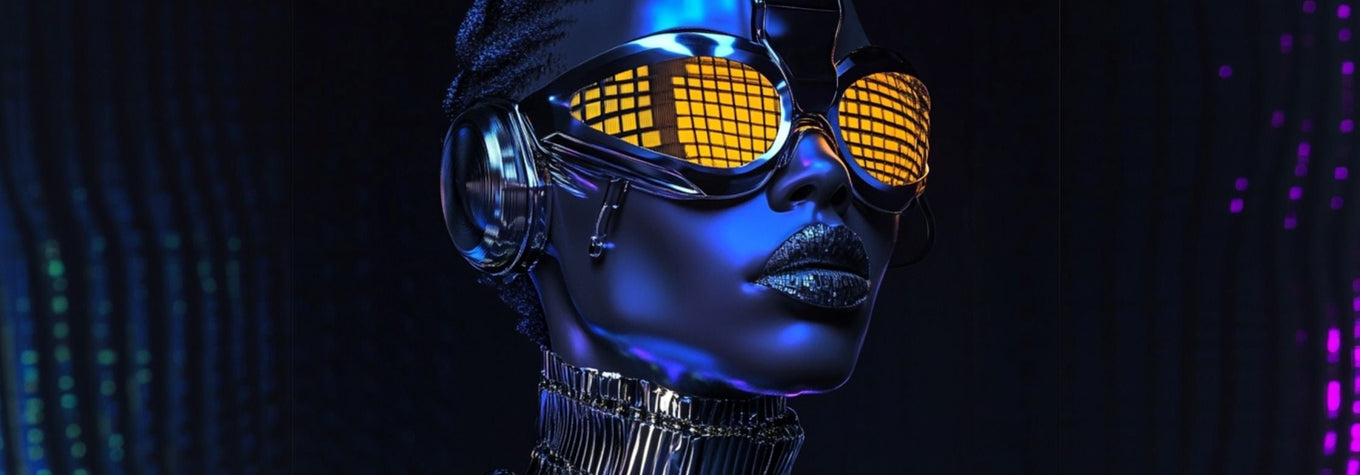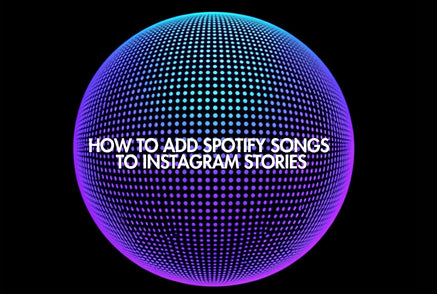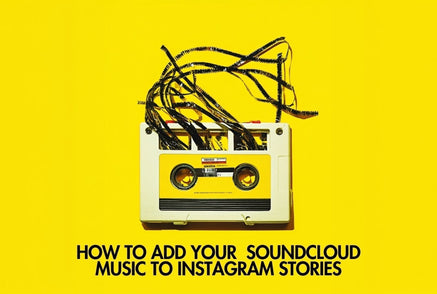How Impactful Is AI in Music Creation?
The development of artificial intelligence made a significant impact on the music industry. Spotify, one of the most popular music streaming platforms, uses artificial intelligence to give better recommendations to users. The best example is the artificial technology on Spotify, based on machine learning. The system analyzes your listening and engagement patterns, offering you new songs similar to what you heard before. It works for all users, as each of them has different recommendations from multiple categories. (daily and weekly recommendations, genre recommendations, etc.).
Spotify AI DJ brings new recommendations based on real-time feedback, so the tracks will be similar to those you listened to before. Still, AI-powered recommendations are not new for platforms like Spotify and Apple Music. What's more interesting is how artificial technologies affect music creation. How do musicians use AI to bring in new tracks? What are the legal and ethical considerations of using AI in the music industry? What common technologies do creators use today? Let's dive in and discover this topic.
Can Artificial Intelligence Replace Humans in Music Creation?
This is the #1 question today because development goes extremely fast, and specialists in many industries start to worry about the role of artificial intelligence increasing. Developers make this program to analyze mistakes and deliver better results, consider changes, and so on. Still, will it be enough to completely replace musicians? At what we have today, no. Of course, there are AI-based tools like Boomy that allow users to create songs "in seconds" and submit them to streaming platforms.

With Boomy, you can create and edit AI-generated music for free. Still, paid pricing plans provide access to advanced tools and expand your capabilities.
There are two points of view on such programs. Some individuals consider it as an opportunity to start their career and enter the community of musicians. The others don't take it seriously because they think AI novelties human creativity and prevents artists from unlocking their full potential. Still, the truth is somewhere behind these two statements. The usage of AI technologies can vary depending on the genre and style. A phonk, a new genre that became extremely popular in 2024, is created mostly with AI technologies. Artists create epic transitions and drops and add a minimum of lyrics to the songs.
Nobody said that AI can replace Kendrick Lamar, Eminem, Travis Scott, and other famous artists in the industry. There's another tendency: AI-generated music will create its niche and compete with other genres.
One of the most common ways to use artificial intelligence in the music industry is to initiate a music resurrection. A recent example of such activity is when Paul McCartney restored the track of John Lennon to create “Now and Then”, the last song of the Beatles.
Artificial Intelligence is also making a difference in music production, allowing musicians to create instrumental versions of their tracks, rearrange them, or record a vocal over. With options like Rap Beasts and Global Groove, it takes seconds to do so. Besides generating songs from scratch and modifying them, you can break them into components. This may be very useful in creating soundtracks for movies, releasing instrumental versions, or sharing them for commercials.
How Can Artificial Intelligence Be Used in Music Creation?
|
Category |
AI Application |
Description |
|
Music Creation |
AI Composers |
AIVA, OpenAI's MuseNet, and other AI-based tools can generate original compositions in various genres and styles. |
|
Sound Design |
AI Synthesizers |
AI-powered synthesizers can create unique sounds and effects, aiding sound engineers and producers. |
|
Lyric Generation |
Natural Language Processing (NLP) |
AI models like GPT can assist in writing song lyrics based on themes, emotions, or keywords. |
|
Music Production |
Automated Mixing and Mastering |
AI tools like LANDR and iZotope Neutron optimize audio mixing and mastering processes. |
|
Personalization |
Music Recommendations |
AI algorithms power platforms like Spotify and YouTube Music to curate personalized playlists for users. |
Examples of how to use artificial programs to improve your experience in the music industry.
Why Do Musicians Have Such an Interest in AI Technologies?
The main reason why artificial technologies become interesting for music creators is because of their simplicity. Tools with intuitive interfaces and hints allow users to learn the basics within a short time and start creating tracks from scratch. They can use existing fragments or create tracks from scratch. The number of options to combine, rephrase, or recreate existing music is wide and allows you to manipulate the existing pieces as much as you want. Moreover, some programs generate music according to prompt, considering style, tone, tempo, and other details.

Audio craft tools from Meta allow you to send prompts and receive music generated with the help of artificial technologies. These are not just sounds. Users receive coherent samples that can be used to create full-length tracks and share them on streaming platforms.
AIVA: Breakthrough in Music Creation
The advancements in using AI for music creation go far beyond chat GPT or similar tools. Today, we talk about artificial music creators, and AIVA is one of them. AIVA, or Artificial Intelligence Virtual Artist, is an artificial composer officially recognized as France’s SACEM (Society of Authors, Composers, and Publishers of Music). Some experts consider this a breakthrough in the industry, meaning that artificial music equals the one created by people. With AIVA, users can develop music styles, edit existing tracks, and even publish them.

Different subscription plans give more opportunities. For example, you can unlock monetization, create longer tracks, and download files in all formats.
Can You Become a Successful Musician Using AI?
No illusions: AI won't make you successful the next day you start using it. In most cases, artists who make breakthroughs and succeed create songs by themselves. Artificial technologies help them by simplifying some processes, analyzing global trends, and giving you more information about the audience. With this data provided by the AI assistant, it will be much easier to:
- Adapt your music marketing strategy.
- Change the posting schedule to attract more users.
- Adapt your content strategy considering the age categories and preferences of your listeners.
Another issue to consider for those who create music with AI is that such content revolves around credits and authorships. If the track is created with artificial technologies, who holds the ownership? In AIVA’s case, the users who subscribed to the platform own the song, because they subscribed to the platform. Still, what about other cases?
Soundful, an AI song generator, creates a collaborative environment, considering artificial technologies helping artists, not replacing them.
There are dozens of options for musicians to use artificial intelligence to their advantage. If you are a beginner, AI-based tools will help you understand the basics of music development, so you won't struggle releasing songs in the future. With organic music promotion packages and the needed tool base, you will achieve new heights as an artist to build a successful career and cooperate with industry giants like Universal Music Group.
Is there a possibility for AI to replace musicians?
Do musicians use artificial technologies?
What AI tools can musicians use at the beginning of their careers?
Is AI music considered copyright-free?





















Naomi Sinclair
AI can’t replace human creativity, but it’s incredible to see how it can enhance production and provide new avenues for artists.
AI can’t replace human creativity, but it’s incredible to see how it can enhance production and provide new avenues for artists.
Layla Hernandez
I’ve been using AI for beat generation, and this blog just confirmed how big it’s going to be in music. Artist Push explained it so well, especially how AI can help promote tracks to the right audience. More blogs like this, please!
I’ve been using AI for beat generation, and this blog just confirmed how big it’s going to be in music. Artist Push explained it so well, especially how AI can help promote tracks to the right audience. More blogs like this, please!